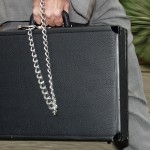What Does the Law Say About DWI Checkpoints in New York?
Police officers are allowed to set up sobriety checkpoints in New York. These allow them to quickly stop drivers and check if they are driving while intoxicated. However, the checkpoints must conform to various legal limitations and be conducted fairly and impartially.
If you are stopped at a DWI checkpoint and subjected to the sobriety test but fail the test, you could be charged with driving under the influence. A DUI is a criminal offense that could subject you to severe consequences if convicted. Contact skilled Long Island criminal justice attorneys to help you understand your rights at a DWI checkpoint.
Legal Elements of a DWI Checkpoint
The US Supreme Court found that DWI checkpoints constitute the seizure for Fourth Amendment purposes. However, they are reasonable and permissible under certain conditions, especially if police officers have reasonable suspicion that a diver has violated the law.
Since the dangers of drunk driving outweigh the Fourth Amendment intrusion, DWI checkpoints are legal as long as police officers do the following:
- Set up the checkpoints for a specific purpose
- Set up adequate safety precautions, including proper lighting and warning of the checkpoint’s existence
- Use a predetermined random pattern to determine which cars to stop
- Stop drivers only for a reasonable amount of time at the checkpoint
- Not violate a driver’s privacy to a certain degree
- Have a supervisor oversee the checkpoint

Failure to meet these conditions could amount to a violation of the checkpoint regulations. Experienced Long Island DWI and DUI defense lawyers could use these violations to help you beat your DUI charges.
What Does a Sobriety Check Point Entail?
Once a police officer asks you to pull over for suspicion of drunk driving, they require you to submit a breathalyzer test. It measures your blood alcohol concentration by analyzing your breath.
Depending on the officer’s judgment about your intoxication level, they may require you to get out of the car and undertake some sobriety tests.
The law requires New York police officers to be cautious about detaining a driver for too long. There are also limits on how long the checkpoints can be active on any given road. Violating these guidelines is justification enough for your Long Island DWI and DUI defense attorneys to fight to dismiss your DUI case.
What Are My Rights at a DWI Checkpoint?
Drivers have rights at DWI checkpoints in New York. Police officers must adhere to certain restrictions when stopping motorists to assess their sobriety levels. They must protect every motorist’s rights, so it’s essential to understand what these rights are:
Consent for a Search
Police officers shouldn’t search you or your vehicle without your consent. Forcing you out of your car and conducting an unwarranted search is illegal. It can be the basis upon which your DWI and DUI defense lawyers in Long Island fight to have your DUI case dismissed.

On your part, you should avoid turning around or making an illegal turn to avoid the search, as this would give the officers probable cause to pull you over. They could also detain you if they reasonably suspected that you were doing something illegal, hence the reason for turning around.
Refuse a Sobriety Test
The law requires motorists to provide law enforcement officers with their license and registration numbers. The officers can also ask several questions and subject motorists to field sobriety tests to determine if they were driving while impaired. You have the right to refuse to answer an officer’s questions or to take the chemical test.
However, refusing a chemical test could increase the risk of having your license suspended under implied consent laws in New York. Courts consider probable cause in safeguarding drivers’ constitutional rights.
The Right to Remain Silent
You have a right to refuse to answer an officer’s questions, and an officer should remind you of this as constituted in the Miranda rights if they arrest you. However, remember that while you have a right not to answer an officer’s questions, keeping quiet would give the officer additional grounds to investigate you further.

The officer would feel that your silence is because you’re hiding something. Call skilled DWI and DUI attorneys in Long Island to protect your rights if you decide to remain quiet.
What Should I Do if Stopped at a DWI Checkpoint?
In addition to knowing your rights at a DWI checkpoint, it’s also crucial that you know what else to do to avoid getting into trouble with the officers:
- Roll down your window and turn on your car’s interior light
- Maintain calmness and be polite to the officers
- Put your hands on the steering wheel where they are visible
- Ensure your car’s registration and insurance information is easily accessible
- Avoid making any statements that would appear to be an admission of fault
- If an officer presses you further and requests you submit to a sobriety test, contact a DUI attorney immediately.
A Skilled DWI and DUI Attorney Helping You Understand Your Rights at a DWI Checkpoint
Being stopped at a DWI checkpoint can be stressful, especially if you think you could be arrested for wrongdoing. The outcome of every case is different, given the unique circumstances surrounding the police checks. Contact skilled DWI and DUI defense attorneys in Long Island if you are stopped and arrested at a DWI checkpoint for a DUI offense.
They understand DUI laws and how police officers should conduct themselves at checkpoints. Criminal defense lawyers in Long Island can investigate if law enforcers violated your rights and use that to help you beat the DUI charges against you. The Mirsky Law Firm has skilled DUI attorneys who can defend you. Call us at 516-744-1811 or 718-412-8322 for a FREE consultation.











Comments are closed.